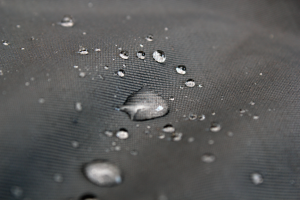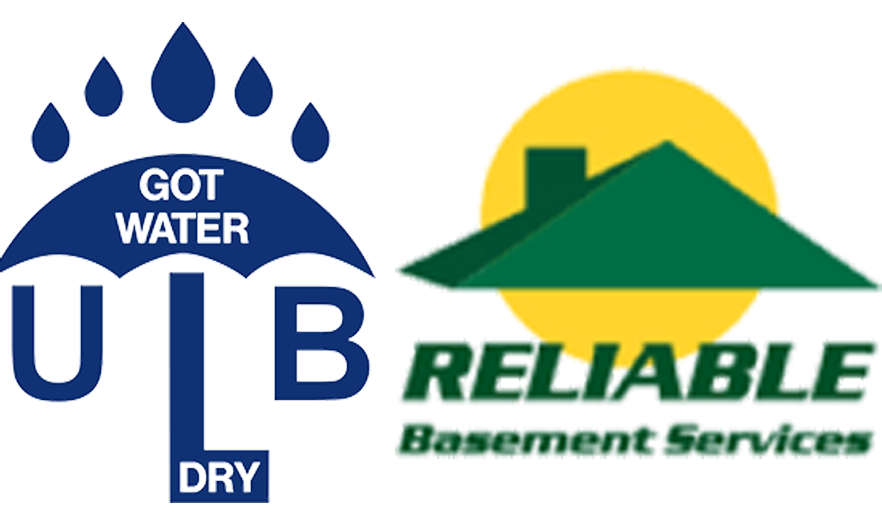
When it comes to protecting your basement from water damage, one of the most important decisions you’ll need to make is whether to use an interior or exterior waterproofing membrane. Basement waterproofing membranes are an essential component of any comprehensive waterproofing system, as they serve as a barrier to prevent water from seeping into your basement walls or floors.
Below, this basement waterproofing company in Wildwood, Illinois is going to explain the differences between interior and exterior basement waterproofing membranes, as well as the pros and cons of each option, to help you make an informed decision for your home.
Understanding Interior Basement Waterproofing Membranes
Interior basement waterproofing membranes are installed on the inside of your basement walls or floors. These membranes are typically made of a durable plastic or rubber material that is designed to repel water and direct it towards a drainage system. The installation process involves applying the membrane directly to the wall or floor surface, creating a watertight barrier between the interior space and the surrounding soil.
One of the main advantages of interior basement waterproofing membranes is that they can be installed from the inside of the basement, which makes them a more cost-effective option compared to exterior membranes. Additionally, interior membranes are less disruptive to the landscaping and exterior of your home, as there is no need for extensive excavation. However, it’s important to note that interior membranes are not effective at preventing water from entering the foundation walls, which means that they may not be suitable for basements with high water table or severe water infiltration issues.
Pros and Cons of Interior Basement Waterproofing Membranes
There are several benefits to choosing interior basement waterproofing membranes. First, they are generally more affordable than exterior options, making them a popular choice for homeowners on a budget. Additionally, the installation process is relatively quick and straightforward, causing minimal disruption to your daily routine. Interior membranes also provide an additional layer of protection against moisture and can help to reduce the risk of mold growth.
However, there are some drawbacks to consider as well. Interior membranes are not always suitable for basements with severe water infiltration issues, as they do not address the root cause of the problem. They also require regular maintenance and inspection to ensure that they remain intact and effective.
Exploring Exterior Basement Waterproofing Membranes
Exterior basement waterproofing membranes, on the other hand, are installed on the outside of the foundation walls or floors. These membranes are typically made of a thick, durable material, such as rubberized asphalt or polyethylene, that is designed to withstand the elements and provide a long-lasting barrier against water intrusion. The installation process involves excavating the soil around the foundation walls to expose the exterior surface, applying the membrane, and then covering it with a protective layer of soil.
One of the main advantages of exterior basement waterproofing membranes is that they provide a more comprehensive solution to water infiltration issues. By preventing water from encountering the foundation walls, exterior membranes effectively eliminate the risk of water seepage and potential damage to the basement. Additionally, exterior membranes can also help to reduce hydrostatic pressure on the foundation walls, which can lead to cracks and structural problems over time.
Pros and Cons of Exterior Basement Waterproofing Membranes
There are several benefits to choosing exterior basement waterproofing membranes. First, they are highly effective at preventing water infiltration and can provide long-lasting protection for your basement. Exterior membranes also have the advantage of addressing the root cause of the problem, rather than simply managing the symptoms. This makes them a suitable choice for basements with severe water infiltration issues or high water tables. Furthermore, exterior membranes can improve the overall value of your property, as they are visible and can enhance the curb appeal of your home.
However, there are a few disadvantages to consider as well. The installation process for exterior membranes is more complex and time-consuming, as it involves excavation and landscaping work. This can result in higher installation costs and may cause disruption to your daily routine. Additionally, exterior membranes require periodic maintenance and inspections to ensure that they remain intact and effective. It’s also important to note that exterior membranes may not be suitable for all types of soil conditions, so it’s essential to consult with a professional basement waterproofing company in Wildwood, Illinois before deciding.
Which Is Right for Your Home?
When deciding between interior and exterior basement waterproofing membranes, there are several factors you should consider. First, you’ll want to assess the severity of your water infiltration issues and the type of soil conditions around your foundation. If you have a high water table or experience frequent flooding, exterior membranes may be the best option for you. On the other hand, if your water infiltration issues are relatively minor or you are on a tight budget, interior membranes may provide sufficient protection.
It’s also important to consider the long-term benefits and potential return on investment. While exterior membranes may require a larger upfront investment, they can significantly increase the value of your property and provide long-lasting protection. Additionally, you should consider the aesthetic appeal and visual impact of the membranes. If you are concerned about the appearance of your basement, interior membranes may be the more suitable choice, as they are not visible from the outside.
In conclusion, choosing between interior and exterior basement waterproofing membranes is a decision that should be based on your specific needs and circumstances. Both options have their advantages and disadvantages, and it’s important to consult with a professional basement waterproofing company to assess your situation and provide expert guidance.
Looking for a Basement Waterproofing Company in Wildwood, Illinois?
Are you ready to have a basement waterproofing membrane installed by the best basement waterproofing company in Wildwood, Illinois? If so, ULB-DRY Waterproofing is the company to call. We specialize in both interior and exterior basement waterproofing solutions and can provide tailored recommendations based on your specific needs. Contact us today to get started.





